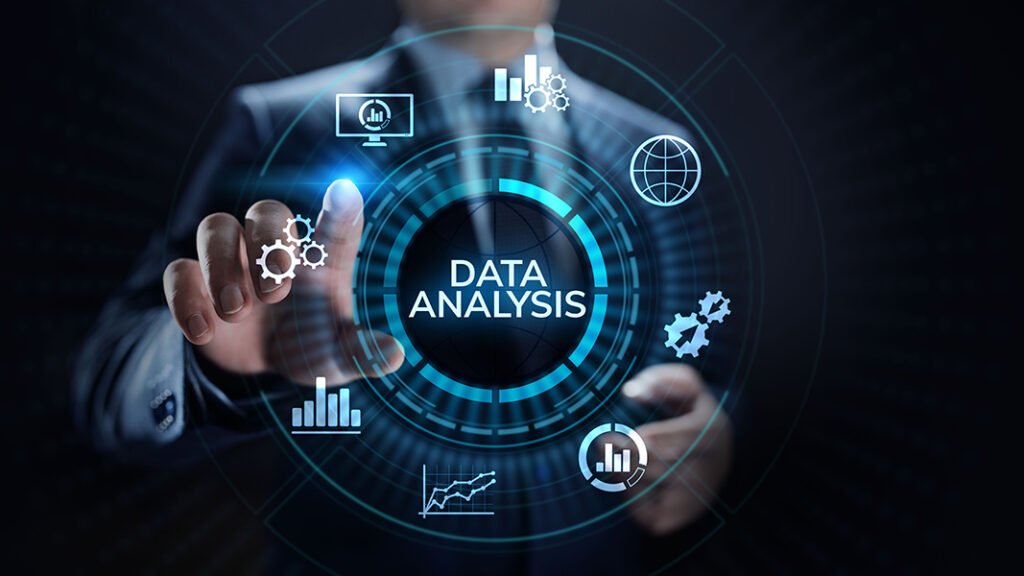DATA AND ANALYTICS
Testimonials

Turn your data into a competitive advantage!
Data is the lifeblood of the digital era. The data volume created and consumed continues to grow at a rapid pace with no signs of slowing. But how do you protect, access, and leverage it for meaningful business insights?
Our enterprise data and analytics services help companies not only manage the data but also break down data silos to identify untapped opportunities and expose hidden risks. The result — a competitive advantage that enables clients to make intelligent business decisions that drive performance and growth while managing risks.
Data and analytics services are critical for our clients aiming to harness the power of data to make informed decisions, gain competitive advantages, and drive business growth. These services encompass a wide range of activities, technologies, and strategies designed to manage, analyze, and derive insights from data. Here’s an overview of the key components of data and analytics services:
Our Services Includes :
1) Data Strategy and Planning:
- Data Assessment: Evaluate an organization’s data sources, quality, and readiness for analysis.
- Data Governance: Define data governance policies, standards, and procedures to ensure data quality, security, and compliance.
- Data Architecture: Design a scalable and flexible data architecture to support data storage, integration, and analytics.
2) Data Collection and Integration:
- Data Ingestion: Collect and ingest data from various sources, including databases, APIs, IoT devices, and external data providers.
- Data Transformation: Clean, transform, and enrich data to ensure consistency and accuracy.
- Data Integration: Integrate data from disparate sources to create a unified and holistic view of the organization’s data.
3) Data Warehousing and Storage:
- Data Warehousing: Design and manage data warehouses or data lakes to store and organize large volumes of data for analytics.
- Cloud-Based Storage: Utilize cloud-based storage solutions (e.g., Amazon S3, Azure Data Lake Storage) for cost- effective and scalable data storage.
4) Data Analytics and Modeling:
- Descriptive Analytics: Provide insights into historical data trends and patterns.
- Predictive Analytics: Use statistical and machine learning models to forecast future outcomes.
- Prescriptive Analytics: Recommend actions based on data insights to optimize decision-making.
- Advanced Analytics: Apply techniques like natural language processing (NLP) and computer vision for more advanced data analysis.
5) Data Visualization and Reporting:
- Develop interactive dashboards and reports that translate complex data into actionable insights for stateholders.
- Use data visualization tools like Tableau, Power BI, or custom-built solutions.
6) Big Data and NoSQL Services:
- Implement and manage big data technologies (e.g., Hadoop, Spark) and NoSQL databases (e.g., MongoDB, Cassandra) for handling large and unstructured data.
7) Machine Learning and AI:
- Leverage machine learning and artificial intelligence algorithms to automate data analysis, predictions, and decision-making processes.
8) Data Security and Compliance:
- Implement data security measures to protect sensitive information and ensure compliance with data privacy regulations (e.g., GDPR, HIPAA).
- Conduct data privacy assessments and audits.
9) Data Quality and Cleansing:
- Employ data quality tools and processes to identify and rectify data anomalies and inconsistencies.
10) Data Catalog and Metadata Management:
- Maintain a data catalog to index and manage metadata, making it easier to discover and understand available data assets.
11) Data Migration and ETL (Extract, Transform, Load):
- Assist in migrating data from legacy systems to modern platforms and design ETL pipelines for data movement and transformations.
12) Data Monetization Strategies:
- Explore opportunities to monetize data assets through data-as-a-service (DaaS) or by offering data-driven products and services.
13) Data Training and Skill Development:
- Provide training to empower employees with data literacy and analytics skills.
14) Data Ethics and Responsible AI:
- Develop ethical guidelines and practices for responsible data usage and AI appliactions.
Data and analytics services are instrumental in helping our clients transform data into actionable insights that drive decision-making, improve operational insights.


